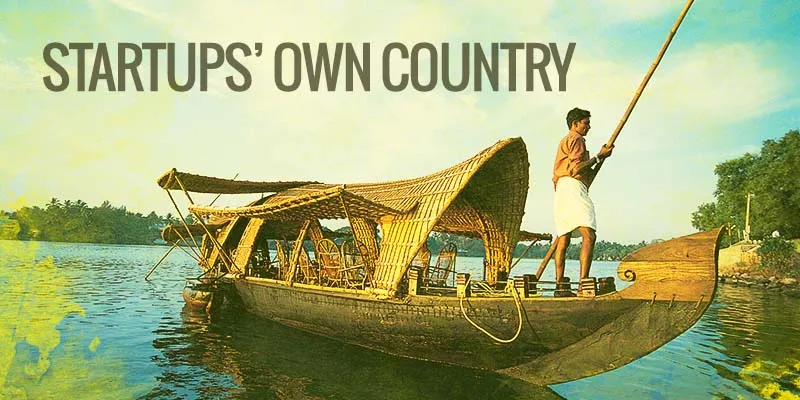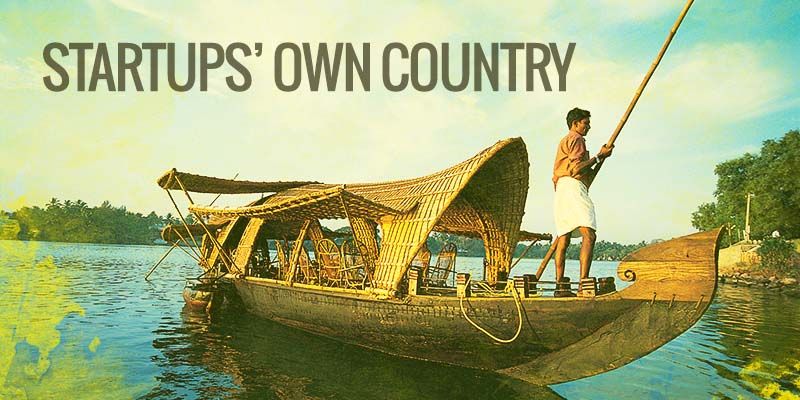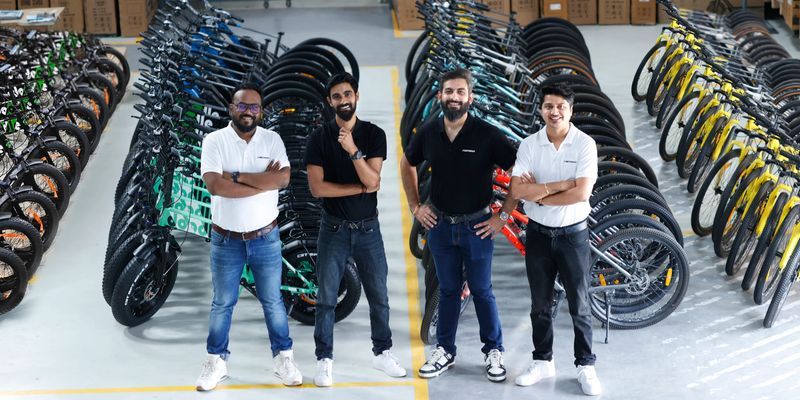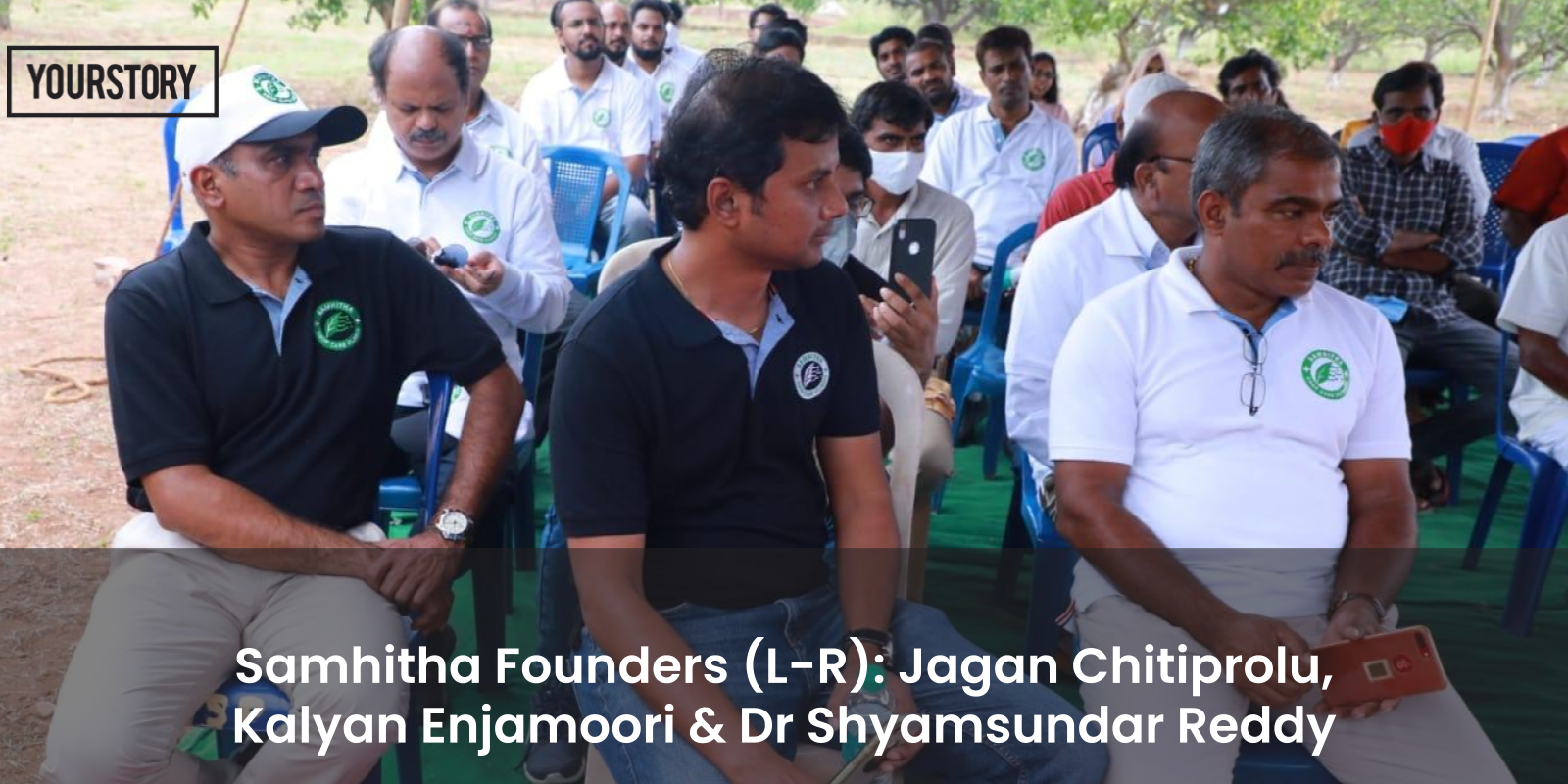After tourism, Kerala is now creating a strong State-fuelled entrepreneurial ecosystem
You have a startup idea in mind but don't have the funds needed to build the MVP. Normally, you would look for a basic family-and-friends round or look for some form of seed or angel investment. But if you happen to start up in Kerala, there isn't much running around needed. From funding, to incubation to mentorship to investment and acceleration, everything is taken care of by the government.
"I applied for an exporter's licence for my startup on a Wednesday and by Friday, I got the license," says Ajay Jose, Founder, Greenkurry, a groceries e-commerce company based out of Kochi. For awhile now, the startup world has been abuzz with the fast growing and thriving startup ecosystem of Kerala.

Pivoting to a newer model
After focussing and building tourism in the State, Kerala has now single-mindedly focussed on one thing: building a startup ecosystem. For years now, there has been migration of people from the State to different parts of the world. Believing that this has resulted in a significant 'brain drain' which, in turn, has affected the knowledge economy of Kerala, the government of Kerala has created the Kerala Startup Policy. It aims to build an entrepreneurial ecosystem in the State.
Converting weaknesses into strengths
Jijo Olassa, CEO of Verbat Technologies adds that Kerala as a State doesn't have the required land mass to build manufacturing facilities. For years, he says, the State government looked at tourism to bring in revenue. However, looking at the recent startup wave, the government intends to create a strong technical startup ecosystem. Jijo has also been an active part of Startup Village in Kerala.
Building collaborations
Pranav Suresh, CEO of the Startup Village, adds that Kerala as a State has a limited number of industries that can create jobs for the youth. This, he says, has lead to the migration of young talent out of the State. Startup Village is a business incubator that aims to create close to 1,000 startups in Kerala within the next 10 years. It's possibly the first incubator in the country that has been created out of a public-private partnership.
Kerala Startup Mission was established to enable most of the policies and help their seamless integration. Dr. Jaysankar, CEO of Kerala Startup Mission (previously Technopark TBI), adds that as unlike other States, where support comes in from different sources, a central nodal agency is needed in Kerala to help implement the different startup policies that the government has created.
Bare essentials
With both Startup Village and the Startup Mission spearheading the movement, several startups find it easier to build teams, get seed funding and even find the right mentorship. Till date, the total number of startups that have been a part of the Startup Mission are close to 210, of which 170 have graduated.
Jugul Thachery, Founder and COO, Ruby Seven Studios Inc Cochin, says, "The government makes the dream of starting up easier. We were one of the first to join the techparks. There was hardly anybody at that point. We got the office space for low rent and there were mentors provided and even easy funding and training."
As per the current mandate, the Kerala Startup Mission will work with startups across the State and provide them with the needed grants, interest-free loans, co-working space, incubation and mentorship. In their incubation space the Startup Mission currently has close to 45 startups, of which around 20 will be graduating.
Making funding easier
Unlike other regions like Bengaluru, Mumbai, Delhi and Chennai, funding in Kerala doesn't flow in easily. This, Jugul says, could be because of the perception people have towards the State. However, to make funding easier, the government of Kerala has earmarked Rs 500 crore for investment in startups with no interest rates.
Arjun Pillai, Co-founder and CEO of Profoundis, a startup based out of the Startup Village, says, "We were selected for a UK-based mentorship programme but we needed to pay USD 10,000. Being a startup, my co-founder and I couldn't raise that kind of funds so the government immediately provided us with a grant of the amount, making it easy for us to be a part of the programme."
Ajay says Kerala Startup Mission provides paid trips to international fairs in Germany, Australia and many others places. Fairs such as CEBIT in Germany provide good level of networking opportunity to grow business. "Helping startups teams visit such fairs with all the expenses taken up by the Startup Mission and Government of Kerala is highly beneficial for budding entrepreneurs like us,” he adds.
Apart from this, Kerala startups also get funded by HNIs based out of Europe or the Gulf. Ajay says that while he isn't aware or hasn't come across a specific angel network or group based out of the State, several of these HNIs take active interest in the startups of Kerala.
Technology focus
There seems to be a focus on startups that can work on a technology model. While the audience in the State, according to Pranav, isn't made of early adopters, the government and the incubators are focussed on technical products. "Since there is low infrastructure needed, technical startups are easier to build," adds Jijo.
The Technology Innovation Zone that has recently been created helps startups try out their ideas. Dr. Jaysankar adds that the Startup Mission provides these startups the cushioning needed even if they fail. At each stage, they bring in technical mentors and guides who can help them grow and build their products faster.
Student entrepreneurship
In lieu of retaining the younger talent in the State, Kerala has a unique student entrepreneurship policy. If a student has an idea and wants to begin a startup in his college years, he or she can take a break from their course and begin work on their startup. "They can always rejoin the course from where they left off," adds Arjun.
Ajay says that in the recent Kerala Startup Mission policy, a part of the attendance and academic marking and rankings are given to student entrepreneurs who are yet to finish their courses.
"Once the government gets associated with mentoring and helping the startups, families don't discourage their children as well," adds Jugul.
Academic guidance
Apart from government-specific policies that encourage student entrepreneurship in Kerala, academic institutions like IIM-Kozhikode too are doing their bit to encourage startups in the State.
In 2014, 15 students with entrepreneurial background joined IIM to pursue MBA eduction. This number was 20 in 2015. Though they do not have a formal incubation centre, they support student entrepreneurs through:
a) Starter cell initiative: In which students passionate about entrepreneurship are allotted mentors who are industry professionals (particularly full-time entrepreneurs), to guide them and set up their startups during their student life at IIM-K.
b) Start-o-sphere: A mega entrepreneurial summit held on Sept 12-13, 2015 with an objective to provide a platform for networking, mentoring and funding opportunity to the participant startups. Delegates from various parts of the entrepreneurship ecosystem came in at one stage as partners to Ecell, IIM-K and provided exposure to startups.
"We held a startup fair in which entrepreneurs were given stalls to display their startups in front of about 30 investors incubators, accelerators and others," says Suraj Prakash, Coordinator, Entrepreneurship and Innovation Cell, IIM-K
c) Workshops and speaker sessions: A regular feature at IIM-K is the workshops, speaker sessions and panel discussions. This provides students and budding entrepreneurs a continuous thrust and knowledge sessions in practical aspects of starting up. Workshops by Thoughtworks, Zinnov Consulting and talks by seasoned entrepreneurs happen at regular intervals
A total of 58 startups have been set up from those graduated from IIM-K in the last five years. "We would like to mention that the alumni and college administration support entrepreneurship activities by providing assistance, mentoring, networking to the startup enthusiasts," adds Suraj.
Starting up in Kerala v/s beginning in Bengaluru
Harsha Thachery, CEO and Co-founder of Masalabox, a foodtech startup based out of Cochin and Bengaluru, says that regions are very different. She adds that it's easier to crack an idea and market in Kerala whereas Bengaluru is more evolved. But there are more individual investors and private funds in Bengaluru. "Nevertheless, the market and ecosystem in Kerala is becoming very open to startups," she says.
Key pointers of the government aids
- Creating a nodal centre like the Startup Mission to ensure the key policies are implemented
- Student entrepreneurship encouragement - students have the opportunity to take a break and work on their startup ideas. They can get back to educational fold after
- Specific Rs 500-crore fund allocated for startups
- Provision of easy grants
- Accelerator programmes as provided by Startup mission and Startup village
- Technology innovation zones for technology-specific startups











